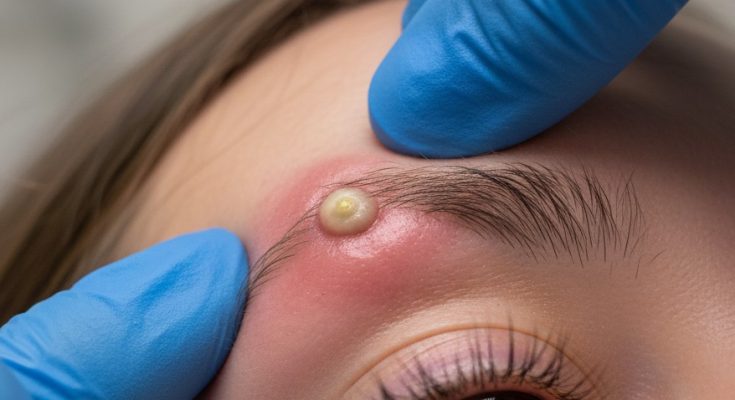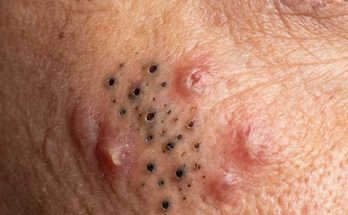When it comes to improving body shape, many people think the answer lies solely in exercise.
While physical activity is undeniably important, nutrition plays an equally powerful role.
Among all nutrients, protein stands out as one of the most influential when it comes to transforming the body.
It not only helps build lean muscle and burn fat but also supports overall tone, balance, and vitality. Whether your goal is to sculpt your physique, slim down, or simply feel stronger and more confident, protein is the key nutrient that helps shape your body from the inside out. Protein is made up of amino acids, often called the building blocks of life. These amino acids are essential for repairing and rebuilding tissues, including muscles, skin, and bones. Every time you exercise, your muscles experience tiny tears that need to be repaired. When your diet includes enough protein, your body uses it to repair these micro-tears, making the muscles stronger and more defined. This repair process is what gives the body a toned and firm appearance. Without sufficient protein, your muscles cannot recover properly, leading to fatigue, slower progress, and less visible results from your workouts. One of the main ways protein improves body shape is by supporting muscle growth and preservation. Muscles are what give the body its definition and structure. When you perform strength training or any form of exercise, your muscles adapt to the stress placed on them by growing stronger and slightly larger. Protein fuels this growth process through muscle protein synthesis, which builds new muscle fibers to replace the ones that were broken down. The more lean muscle you have, the more sculpted and balanced your body looks. Even people who do not aim to build large muscles can benefit from protein, as it helps maintain firmness and prevent the soft appearance that can come from losing muscle tissue. Another significant way protein shapes the body is through its effect on metabolism and fat loss. Lean muscle is metabolically active, meaning it burns calories even when you are at rest. This makes it easier to maintain a healthy body composition over time. When your diet is rich in protein, your metabolism naturally becomes more efficient. Protein also has a higher thermic effect compared to carbohydrates and fats, which means your body uses more energy to digest and process it. This small increase in calorie burning might seem minor, but over time it contributes to a leaner and more defined physique. In addition to boosting metabolism, protein helps control appetite and cravings, making it easier to manage weight and reduce excess body fat. Foods high in protein tend to be more satisfying, keeping you full for longer periods. This helps prevent overeating and reduces the temptation to snack on less healthy foods. Unlike simple carbohydrates that can cause spikes and crashes in blood sugar levels, protein promotes stable energy and sustained satisfaction. By maintaining a healthy balance of calories and nutrients, you naturally support a leaner, more toned body shape. Protein also helps improve body composition by ensuring that the weight you lose comes primarily from fat rather than muscle. Many people who diet without consuming enough protein end up losing both fat and muscle, which can make the body appear softer and less toned even if the number on the scale goes down. Protein protects lean muscle during calorie restriction, allowing your body to burn stored fat for energy instead. This is why people who follow balanced diets with sufficient protein tend to have more defined and fit-looking bodies, even without extreme dieting or excessive exercise. Another reason protein is essential for improving body shape is that it enhances recovery after exercise. When you recover efficiently, you can train more consistently and with better performance. Protein helps reduce muscle soreness and speeds up tissue repair, meaning your body bounces back faster between workouts. This allows you to stay on track with your fitness routine without feeling overly tired or strained. Over time, consistent training and proper recovery lead to visible improvements in strength, posture, and muscle tone. Beyond muscles and metabolism, protein contributes to overall body wellness, which indirectly supports a more attractive and balanced physique. It helps maintain healthy skin, hair, and nails, all of which are made from protein-based structures. Collagen, for example, is a type of protein that keeps skin firm and elastic. When your body gets enough protein, your skin tends to look healthier and more resilient. This adds to the overall impression of vitality and fitness, making protein a beauty nutrient as much as a fitness one. Protein also helps support hormonal balance, which influences how the body stores fat and builds muscle. Hormones such as insulin, cortisol, and growth hormone play roles in metabolism and body composition. A diet rich in protein can help regulate these hormones, promoting fat burning while supporting muscle maintenance. Stable hormone levels also contribute to consistent energy and mood, making it easier to stay motivated in pursuing fitness goals. It is also worth noting that protein plays an important role in longevity and functional strength. As people age, muscle mass naturally decreases, a process known as sarcopenia. This loss of muscle can lead to reduced strength, slower metabolism, and changes in body shape. Consuming enough protein, combined with regular physical activity, helps preserve muscle mass and keeps the body firm and capable even as you grow older. This is why protein is equally important for younger adults striving to improve their physique and older individuals seeking to maintain strength and mobility. A variety of protein sources can be included in your daily diet to support a better body shape. Animal-based proteins such as lean meats, fish, eggs, and dairy products provide complete amino acids that the body can use efficiently. Plant-based options like beans, lentils, tofu, quinoa, and nuts also supply excellent nutrition, especially when combined to form complete proteins. The goal is to include protein with every meal to give your body a steady supply of nutrients for repair and growth. Timing can also enhance results—eating protein after workouts helps maximize recovery and muscle development. While protein is essential, it works best as part of a balanced diet that includes healthy carbohydrates, fats, fruits, and vegetables. These provide the vitamins and minerals your body needs to function efficiently and stay energized. Hydration also plays a key role in how well your body uses protein. Drinking enough water helps transport amino acids to the muscles and supports digestion. Together, these elements create the perfect environment for building strength, endurance, and a beautifully shaped body. In the journey to improving body shape, patience and consistency matter as much as nutrition. Protein does not create instant results, but over time, its effects become clearly visible. A balanced diet rich in protein helps your muscles grow firmer, your body become leaner, and your energy levels rise. It allows you to see the full benefit of your exercise efforts and helps sustain your results long term. Unlike quick-fix diets, a protein-focused approach encourages sustainable, healthy changes that enhance both appearance and well-being. In conclusion, protein helps improve body shape by building and preserving muscle, enhancing metabolism, supporting recovery, and promoting overall wellness. It gives your body the tools it needs to become stronger, leaner, and more defined. Whether your goal is to tone up, lose fat, or simply feel more confident, protein provides the foundation for success. By incorporating enough protein into your daily meals and maintaining a balanced lifestyle, you can shape your body in a healthy, natural, and sustainable way—one that reflects strength, vitality, and long-lasting fitness.



